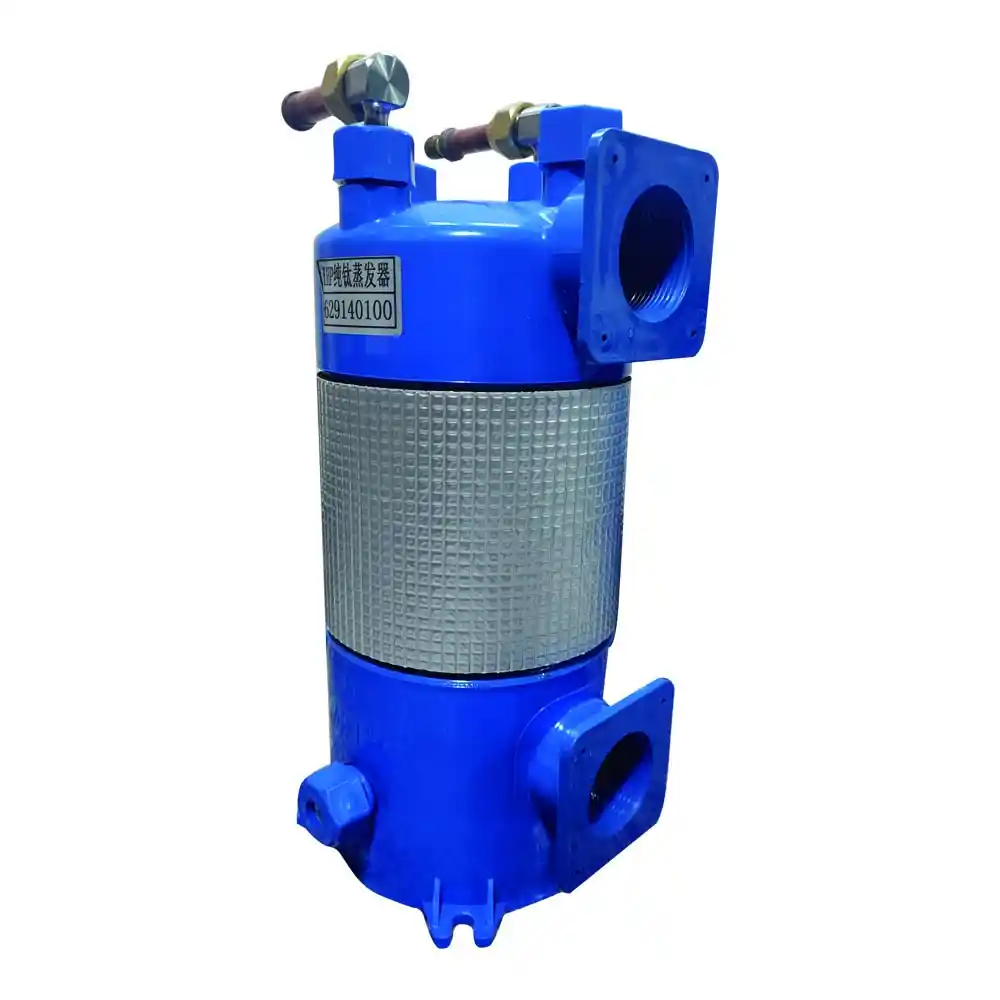1. Introduction
In the realm of residential buildings, achieving optimal comfort and energy efficiency is a top priority for homeowners. Titanium Coil Heat Exchangers have emerged as a cutting-edge technology in residential HVAC systems, offering exceptional performance and numerous advantages. This article explores the application of Titanium Coil Heat Exchangers in residential buildings, their benefits, performance comparisons, and specific case studies.
2. Titanium Coil Heat Exchangers in Residential HVAC Systems
Titanium Coil Heat Exchangers have revolutionized HVAC systems in residential buildings, providing homeowners with enhanced comfort, energy efficiency, and sustainability. Let’s delve into the specific applications and advantages of Titanium Coil Heat Exchangers in residential HVAC systems:
2.1 Benefits of Titanium Coil Heat Exchangers in Residential Buildings
Titanium Coil Heat Exchangers offer several advantages that make them highly suitable for residential building applications:
2.1.1 Superior Heat Transfer Efficiency
Efficient heat transfer is crucial for maintaining optimal indoor comfort in residential spaces. Titanium Coil Heat Exchangers are designed with a large surface area and high thermal conductivity, enabling efficient heat exchange between the heating and cooling mediums. This results in improved temperature control, reduced energy consumption, and enhanced comfort for homeowners.
2.1.2 Corrosion Resistance and Durability
Residential HVAC systems are subjected to varying environmental conditions and potential contaminants. Titanium Coil Heat Exchangers exhibit excellent corrosion resistance, ensuring long-term durability and preventing system degradation. Homeowners can rely on these heat exchangers for reliable and long-lasting performance without the risk of leaks or deterioration.
2.1.3 Compact Design and Space Optimization
Residential spaces often have limited HVAC system installation areas. Titanium Coil Heat Exchangers are compact in design, allowing for efficient space utilization and easy integration into residential HVAC systems. Their compactness enables flexible installation options, making them suitable for a wide range of residential building types and layouts.
2.1.4 Energy Efficiency and Cost Savings
Energy efficiency is a primary concern for homeowners, and Titanium Coil Heat Exchangers contribute to significant energy savings. By improving heat transfer efficiency, these heat exchangers minimize energy waste, reduce heating and cooling costs, and lower carbon emissions. Homeowners can enjoy both environmental benefits and long-term cost savings with these energy-efficient solutions.
2.2 Performance Comparison: Titanium Coil Heat Exchangers vs. Traditional Heat Exchangers
To understand the advantages of Titanium Coil Heat Exchangers in residential buildings, let’s compare their performance with traditional heat exchanger types. The following table presents a comparison of Titanium Coil Heat Exchangers, Shell and Tube Heat Exchangers, and Air-to-Air Heat Exchangers in residential HVAC applications:
| Comparison Criteria | Titanium Coil Heat Exchangers | Shell and Tube Heat Exchangers | Air-to-Air Heat Exchangers |
|---|---|---|---|
| Heat Transfer Efficiency | High | High | Moderate |
| Corrosion Resistance | Excellent | Good | Good |
| Compactness | Compact | Bulky | Compact |
| Maintenance Requirements | Low | Moderate | Low |
| Energy Efficiency | High | Moderate | Moderate |
Note: The table provides a general comparison based on typical performance characteristics. Actual performance may vary depending on specific design and operating conditions.
3. Case Studies: Application of Titanium Coil Heat Exchangers in Residential Buildings
Let’s explore two case studies that highlight the successful application of Titanium Coil Heat Exchangers in residential HVAC systems:
3.1 Case Study 1: Energy-Efficient Home Construction
In this case study, a residential builder aimed to construct energy-efficient homes that provide exceptional comfort while minimizing energy consumption. Titanium Coil Heat Exchangers were selected as a key component of the HVAC system to optimize heat transfer efficiency and reduce energy waste. The use of Titanium Coil Heat Exchangers resulted in significant energy savings for homeowners and improved indoor comfort throughout the year.
3.2 Case Study 2: Retrofitting Existing Residential HVAC Systems
In another scenario, homeowners with an older HVAC system sought to improve its performance and energy efficiency without undergoing a complete system replacement. Titanium Coil Heat Exchangers were retrofitted into the existing system, replacing the inefficient heat exchangers. This retrofit enhanced heat transfer efficiency, resulting in reduced energy consumption and improved overall system performance. The homeowners experienced enhanced comfort, lower energy bills, and a reduced carbon footprint.
4. Conclusion
The application of Titanium Coil Heat Exchangers in residential buildings offers significant advantages, including superior heat transfer efficiency, corrosion resistance, compact design, and energy savings. These heat exchangers contribute to elevated comfort levels, reduced energy consumption, and improved sustainability in residential HVAC systems. By adopting Titanium Coil Heat Exchangers, homeowners can enhance their living spaces’ comfort, lower their energy costs, and contribute to a greener future. The presented case studies exemplify the successful integration of Titanium Coil Heat Exchangers in energy-efficient home construction and retrofitting projects, showcasing their positive impact on residential HVAC performance and energy efficiency.


